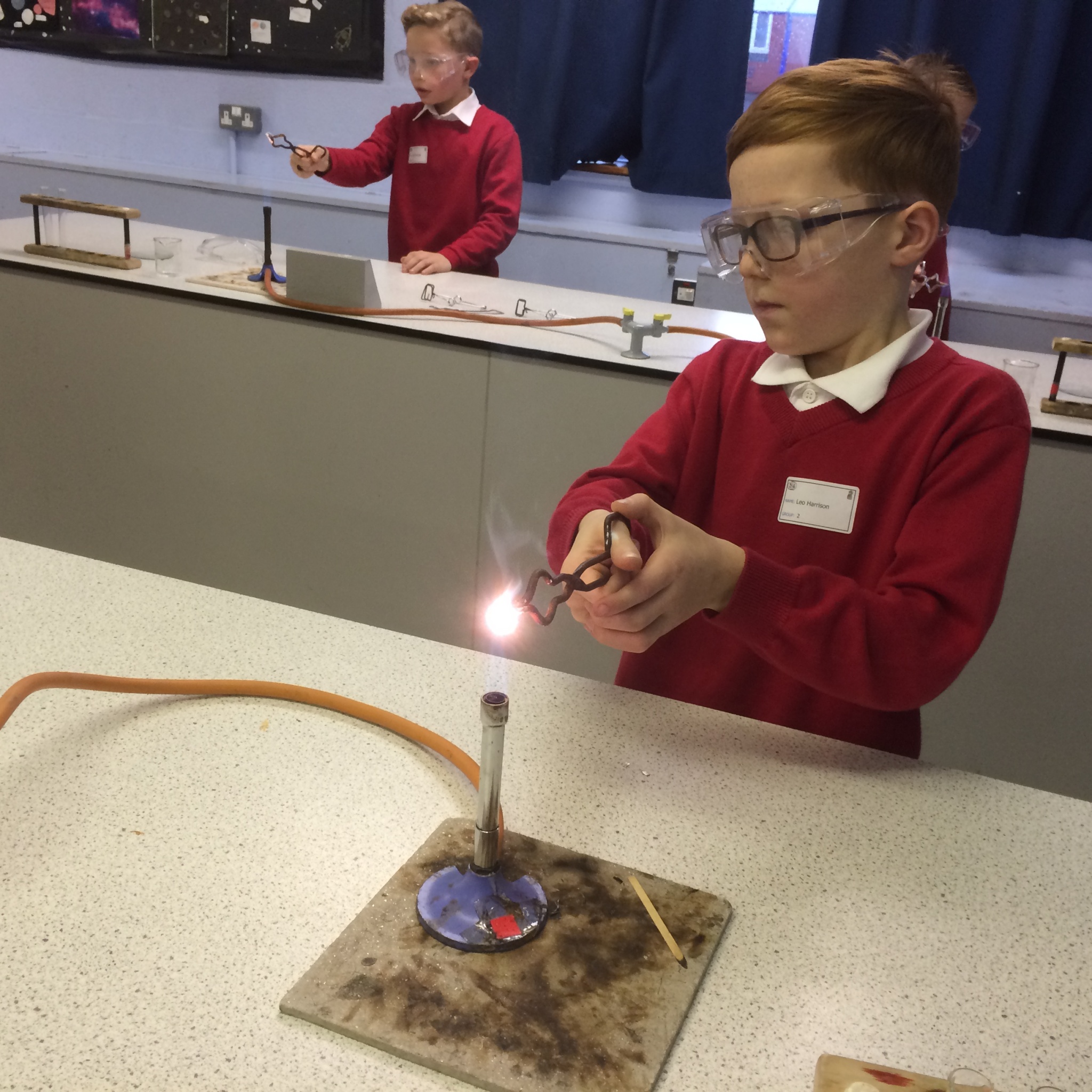
Saint Wilfrid's Catholic Primary School
Aims of Science at Saint Wilfrid's
To foster and maintain children’s natural curiosity for science.
To provide a broad and balanced science curriculum for all children.
To prepare children for life in an increasingly scientific and technological world, and encourage them to develop a scientific approach to solving problems.
To allow children to discover the ‘Big Ideas’ of science for themselves through investigative and practical science that underpins the development of scientific knowledge.
To develop the skills of scientific investigation including; observing, classifying, hypothesising, researching, predicting, testing, measuring, explaining and evaluating.
To encourage children to reflect on the impact of science on our society and their own social, moral, spiritual and cultural development.
To make links between science and other curriculum areas.
To encourage the use of accurate scientific language, recording and techniques, particularly through the use of computing and technology.
Science has changed our lives and is vital to the world’s future prosperity, and all pupils should be taught essential aspects of the knowledge, methods, processes and uses of science.
(National Curriculum, DfE, 2014)
At Saint Wilfrid's, planning for science is a process in which all teachers are involved to ensure that the school gives full coverage of, ‘The National Curriculum programmes of study for Science 2014’ and, ‘Understanding of the World’ in the Early Years Foundation Stage.
.jpg) In Foundation Stage, children develop early scientific skills by using their senses to explore, and make sense of, their world around them. They are encouraged to talk about, and ask questions, about things they observe. Staff in the Foundation Stage use natural phenomena and features of the environment to encourage children to talk about how and why things happen, make links between their experiences and notice similarities, differences and patterns.
In Foundation Stage, children develop early scientific skills by using their senses to explore, and make sense of, their world around them. They are encouraged to talk about, and ask questions, about things they observe. Staff in the Foundation Stage use natural phenomena and features of the environment to encourage children to talk about how and why things happen, make links between their experiences and notice similarities, differences and patterns.
In Key Stage One, children observe, explore and classify plants, animals and materials. They begin to use scientific equipment such as magnifying glasses and microscopes, to answer questions, perform simple tests and gather and record data. Children are encouraged to develop scientific concepts and ideas through first-hand practical activities that allow them to talk about what they have found out, use scientific language to communicate ideas and identify areas for further research using secondary sources such as books or photographs.
In Lower Key Stage Two, children are encouraged to extend and broaden their scientific views of the world through testing and developing ideas about living things such as plants and animals, and familiar environments through their studies of rocks, light and forces. Children begin to make their own decisions about how to carry out scientific enquiries and which method will be the most appropriate in answering their questions. They draw conclusions and talk or write about what they have found out.
.jpg)
In Upper Key Stage Two, children develop a deeper understanding of their scientific ideas through analysing relationships and functions more systematically. They are encouraged to work independently, select appropriate methods for scientific enquiry and explain and justify their conclusions. They also develop their understanding of how scientific ideas, such as theories of evolution, can change over time. As children become confident scientific enquirers they are expected to use accurate measuring and recording techniques in order to use results to make predictions for possible future investigations.
